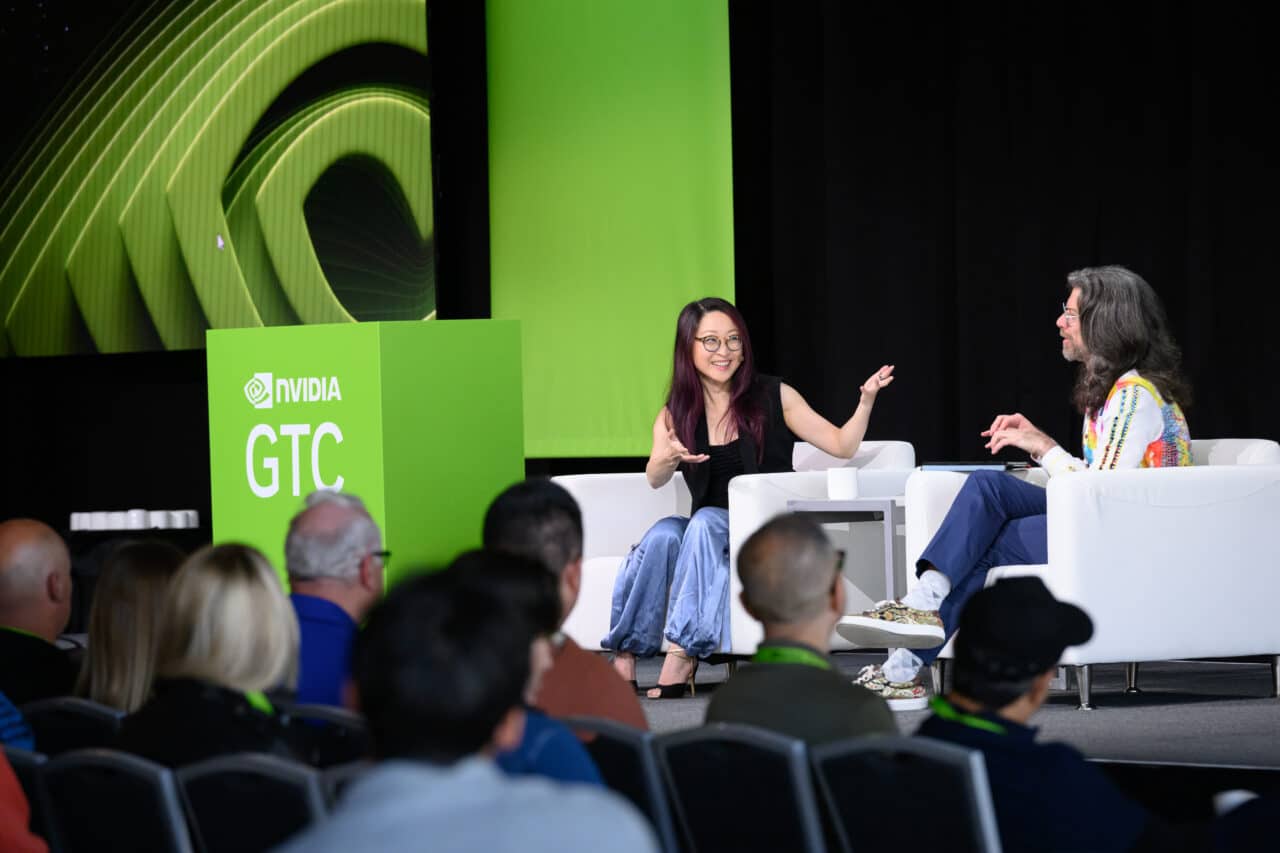Imagine a world where you can whisper your digital wishes into your device, and poof, it happens.
That world may be coming sooner than you think. But if you’re worried about AI doing your thinking for you, you might be waiting for a while.
In a fireside chat Wednesday at NVIDIA GTC, the global AI conference, Kanjun Qiu, CEO of Imbue, and Bryan Catanzaro, vice president of applied deep learning research at NVIDIA, challenged many of the clichés that have long dominated conversations about AI.
Launched in October 2022, Imbue made headlines with its Series B fundraiser last year, raising over $200 million at a $1 billion valuation.
Bridging the Gap Between ‘Idea and Execution’
The discussion highlighted not only Imbue’s approach toward building practical AI agents able to automate menial, unrewarding work, but also painted a vivid picture of what the next chapter in AI innovation might hold.
“Our lives are full of so much friction … every single person’s vision can come to life,” Qiu said. “The barrier between idea and execution can be much smaller.”
Catanzaro’s reflections on the practical difficulties of using AI for simple tasks, such as his own challenges trying to get his digital assistant to help him find his next meeting, underscored the current limitations in human-AI interaction.
It turns out that figuring out where and when to go to a meeting, while easy for a human assistant, isn’t easy to automate.
“We tend to underestimate the things that we do naturally and overestimate the things that require reasoning,” Catanzaro observed. “One of the things humans deal with well is ambiguity.”
This set the stage for a broader discussion of the need for AI to move beyond mere code generation and become a dynamic, intuitive interface between humans and computers.
Qiu said the idea that AI can be a magical assistant, one that knows everything about you “isn’t necessarily the right paradigm.”
That’s because delegation is hard.
“When I’m delegating something, even to a human, I have to think a lot about ‘okay, how can I package this up so that the person will do the right thing?’”
Instead, the better model might be telling your computer to do anything you want. So you’re “telling your computer to do stuff and the agent is a middle layer,” she said.
Such agents will need to be able to interact with people — something often described as “reasoning,” the two observed — and communicate with computers — or “code.”
A Vision for Empowerment Through Technology
Qiu and Catanzaro — who often completed each other’s sentences during the 45-minute conversation — compared AI’s potential to democratize software creation to the Industrial Revolution’s impact on manufacturing.
The parts needed for a steam engine, for example, once took years to create. Now they can be ordered off the shelf for a small sum.
Both speakers emphasized the importance of creating intuitive interfaces that allow individuals from nontechnical backgrounds to engage with computers more effectively, fostering a more inclusive digital landscape.
That means going beyond coding, which is done in text-heavy environments such as an Integrated Development Environment, or even using text-based chats.
“The interface to agents, a lot of them today, is like a chat interface. It’s not a very good interface, in a lot of ways, very restrictive. And so there are much better ways of working with these systems,” Qiu said.
The Future of Personal Computing
Qiu and Catanzaro discussed the role that virtual worlds will play in this, and how they could serve as interfaces for human-technology interaction.
“I think it’s pretty clear that AI is going to help build virtual worlds,” said Catanzaro. “I think the maybe more controversial part is virtual worlds are going to be necessary for humans to interact with AI.”
People have an almost primal fear of being displaced, Catanzaro said, but what’s much more likely is that our capabilities will be amplified as the technology fades into the background.
Catanzaro compared it to the adoption of electricity. A century ago, people talked a lot about electricity. Now that it’s ubiquitous, it’s no longer the focus of broader conversations, even as it makes our day-to-day lives better.
“I think of it as really being able to [help us] control information environments … once we have control over information environments, we’ll feel a lot more empowered,” Qiu said. “Every single person’s vision can come to life.”
